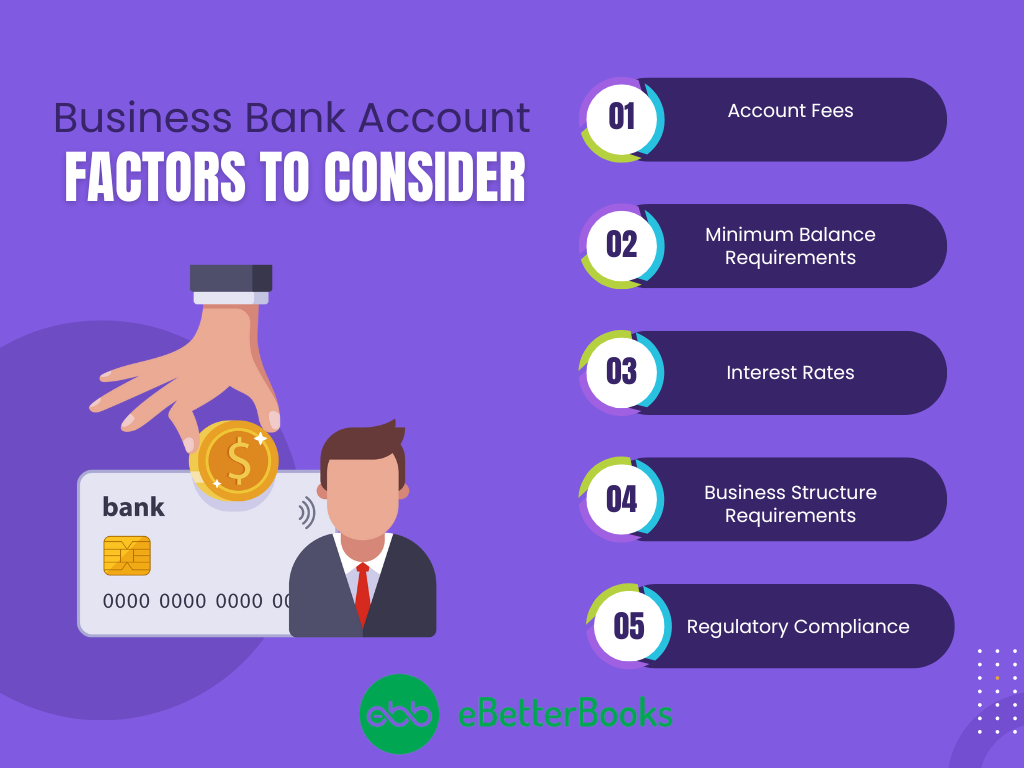Having a business bank account as a small business owner helps in managing finances, and leads to financial growth. It’s often a legal necessity mandated for small businesses to operate legitimately.
A business bank account establishes a relationship with financial institutions, which makes it easier for businesses to get business loans, lines of credit, and other financing options that can be beneficial for expansion and investment.
Why do you need a Business Bank account?
A business bank account builds trust with clients and vendors and demonstrates a commitment to transparency and integrity in financial transactions.
Separate Personal Accounts from Business Accounts
By segregating finances, businesses simplify accounting processes, which ensures accurate tracking of expenses and income. This clear depiction streamlines tax filings, leading to fewer errors and saving time.
Additionally, the Internal Revenue Service (IRS) strongly advises this practice to ensure compliance and transparency. Separate accounts not only help businesses follow tax regulations but also create a clear audit trail, promoting financial integrity and accountability within the business.
Legal compliance
For legal compliance, businesses operating as a limited liability company (LLC), limited liability partnership (LLP), or corporation must own a different business account separate from personal accounts. This separation ensures adherence to regulatory standards and protects personal assets.
In addition, obtaining an IRS-issued Employee Identification Number (EIN) is mandatory for opening a business account. The EIN serves as an important identifier for tax reporting and entity identification.
Accounting Requirements
Businesses are required to maintain precise financial records and comply with accounting principles. They must create financial reports, such as income statements, balance sheets, and cash flow statements, which offer valuable insights into the business’s financial well-being and performance.
These reports assist in decision-making and ensure compliance with regulatory mandates. By separating financial transactions and complying with accounting standards, businesses can efficiently monitor income, expenses, and assets, thereby promoting transparency and accountability in financial management.
Business Checking vs Personal Checking
A checking account, also known as a Share Draft Account at the credit union, is a type of bank account used for making cash withdrawals or deposits. It is different from savings accounts as it is meant for daily use.
Business checking accounts and personal checking accounts share a fundamental purpose as financial tools for managing money. Both account types make deposits and withdrawals easy and provide online banking services for convenient transactions. Moreover, they provide debit cards, which can be used for purchases and ATM withdrawals.
However, they differ in their specific features and intended use. Business checking accounts typically offer additional services customized for businesses, including accepting payments from customers via credit card processing, merchant services, and payroll processing. They may also provide features like higher transaction limits and the option to issue multiple debit cards for employees.
On the other hand, personal checking accounts are for individual use and may have lower fees and fewer transaction limits than business accounts. They provide ease and convenience for day-to-day banking requirements and come with features such as mobile banking and waivers for minimum balance fees.
Factors to Consider Before Opening a Business Bank Account

Considering these factors will help you select a business bank account that meets your business’s financial needs, supports growth, and provides convenient and reliable banking services.
- Account Fees: Compare fees for monthly maintenance, transactions, wire transfers, and other services to find an economical option.
- Minimum Balance Requirements: Check if the bank requires a minimum balance to avoid fees or qualify for certain benefits.
- Interest Rates: If your business expects to maintain a significant balance, compare interest rates offered on business savings or interest-bearing checking accounts.
- Business Structure Requirements: Confirm that the bank allows accounts for your business entity type, such as sole proprietorship, partnership, LLC, or corporation.
- Regulatory Compliance: Ensure the bank complies with relevant banking regulations and offers features that are necessary for legal compliance, such as the ability to obtain an Employer Identification Number (EIN).
Business Bank Account: Benefits
- Legal Compliance: Having a business bank account ensures that you follow the legal rules, especially if you’re a company like an LLC, LLP, or corporation. It also helps keep your money separate from your business funds.
- Financial Organization: A Business bank account makes managing your money easier. It keeps your business transactions separate from your ones, which helps you keep track of your income, expenses, and tax deductions.
- Tax Preparation: With separate accounts, tax preparation becomes easier, as business-related transactions are clearly separated, which simplifies tax filing and reduces errors.
- Liability Protection: When you keep your personal and business finances separate, you help protect your personal belongings from problems related to your business. This way, you can avoid legal and financial risks tied to your business activities.
- Access to Financing: When you build a strong relationship with a bank, it can help you access important financial tools for your business. These tools include business loans, lines of credit, and other financing options that are essential for growing and expanding your business.
- Simplified Record-Keeping: A business bank account provides a clear record of all financial transactions, including deposits and withdrawals. These records help you avoid committing errors in financial reporting.
- Easy Access to Loans and Credit: Managing a business bank account helps in building a relationship with banks. Lenders often prefer working with businesses that have an existing banking history as it gives an idea of the stability and reliability of a business.
Business Bank Account: Feature
Business bank accounts offer essential services like financial organization, tax compliance, and loan benefits.
The following are some features that business banks provide:
- Deposit and Withdrawal Facilities: Business bank accounts allow customers to deposit funds from sales and withdraw cash for business expenses.
- Online Banking: Business bank accounts allow business owners to access account information, transfer funds, and pay bills electronically through a secure online platform.
- Debit and Credit Cards: Business bank accounts allow the issuance of business debit cards for convenient purchases and credit cards for managing cash flow and expenses.
- Payroll Processing: Business bank accounts facilitate payroll for employees, including direct deposit and payroll management services.
- Cash Management: Business bank accounts offer tools and services for managing cash flow, such as sweep accounts and cash concentration services.
- Loans and Lines of Credit: Business bank accounts provide access to business loans, lines of credit, and other financing options to support business growth and expansion.
- Financial Reporting: Business bank accounts allow business owners to generate statements, reports, and summaries of account activity for financial analysis and decision-making.
How to open a Business Bank Account

Consider these basic steps to open a business bank account:
Step 1: Get an EIN
Get an official IRS EIN (Employer Identification Number), also known as Taxpayer Identification Number (TIN).
Step 2: Get Required Documents
You may have to submit your documents, such as a government-issued photo ID or business license, to open a business bank account.
Step 3: Apply In-Person or Online
Opening a bank account can vary depending on the financial institution. Some banks allow you to visit a branch in person, where you may need to bring your necessary documents.
Alternatively, many banks offer online account opening, which allows you to upload your documents through their website.
Note: Keep in mind that most accounts require an initial deposit, which you can typically pay using methods such as a check, credit/debit card, or an electronic transfer from another existing bank account.
Requirements to Open a Business Bank Account
Following is the list of documents that need to be submitted by business owners:
- Business Entity Documents: Depending on the type of business, you may need to provide formation documents such as:
- For a Corporation: Articles of Incorporation
- For a Limited Liability Company (LLC): Articles of Organization
- For a Partnership: Partnership Agreement
- For a Sole Proprietorship: Business License or Assumed Name Certificate/ Doing Business As Certificate (if operating under a different name)
- Employer Identification Number (EIN): You may need to provide your Employer Identification Number (EIN).
- Identification Documents: You need to provide government-issued identification, such as a driver’s license or passport, to verify your identity.
- Proof of Address: You may need to provide proof of your business address, such as a utility bill or lease agreement, to verify the physical location of your business.
- Business License or Permit: Depending on your industry and location, you may need to provide a business license or permit to operate legally.
- Operating Agreement or Bylaws: For entities like LLCs or corporations, you may need to provide an operating agreement or corporate bylaws outlining the structure and governance of the business.
- Business Tax Identification Number: In addition to the EIN, you may need to provide any other tax identification numbers associated with your business, such as state tax identification numbers.
Conclusion
A business bank account keeps your personal and business money separate. Making it one for your personal expenses and another exclusively for business. This separation helps you track income, expenses, and profits accurately.
A business account ensures that you follow legal rules. By using a dedicated business account, you stay on the right side of the law. It provides essential tools, including checkbooks, debit cards, and online banking, which help you manage money efficiently.
